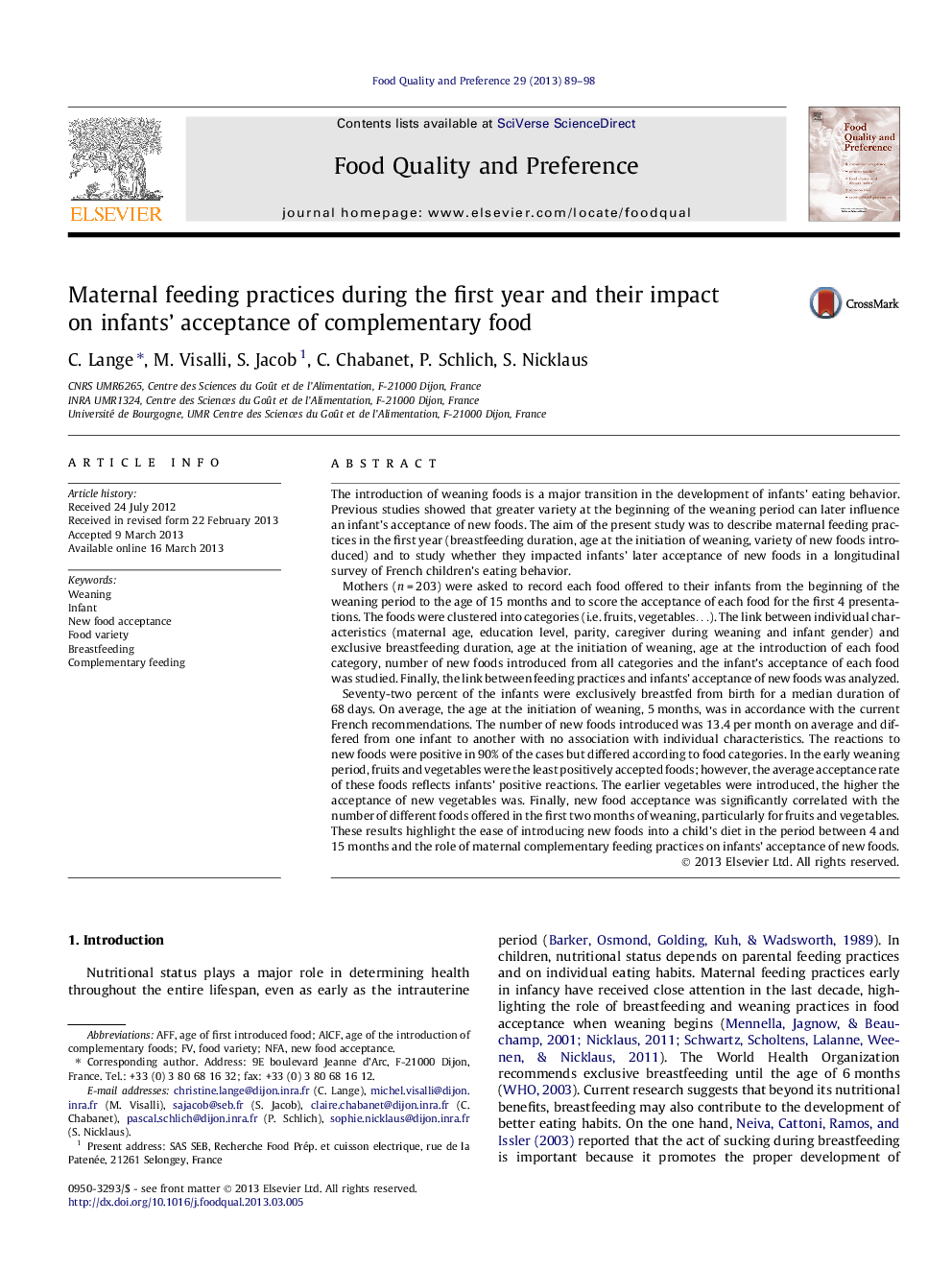| کد مقاله | کد نشریه | سال انتشار | مقاله انگلیسی | نسخه تمام متن |
|---|---|---|---|---|
| 4317446 | 1290595 | 2013 | 10 صفحه PDF | دانلود رایگان |

• The impact of complementary feeding practices on food acceptance is described.
• During the weaning period, 90% of infants’ reactions to new foods are positive.
• New food acceptance increases with the number of foods introduced when weaning begins.
• The earlier vegetables are introduced, the higher the acceptance of new vegetables is.
The introduction of weaning foods is a major transition in the development of infants’ eating behavior. Previous studies showed that greater variety at the beginning of the weaning period can later influence an infant’s acceptance of new foods. The aim of the present study was to describe maternal feeding practices in the first year (breastfeeding duration, age at the initiation of weaning, variety of new foods introduced) and to study whether they impacted infants’ later acceptance of new foods in a longitudinal survey of French children’s eating behavior.Mothers (n = 203) were asked to record each food offered to their infants from the beginning of the weaning period to the age of 15 months and to score the acceptance of each food for the first 4 presentations. The foods were clustered into categories (i.e. fruits, vegetables…). The link between individual characteristics (maternal age, education level, parity, caregiver during weaning and infant gender) and exclusive breastfeeding duration, age at the initiation of weaning, age at the introduction of each food category, number of new foods introduced from all categories and the infant’s acceptance of each food was studied. Finally, the link between feeding practices and infants’ acceptance of new foods was analyzed.Seventy-two percent of the infants were exclusively breastfed from birth for a median duration of 68 days. On average, the age at the initiation of weaning, 5 months, was in accordance with the current French recommendations. The number of new foods introduced was 13.4 per month on average and differed from one infant to another with no association with individual characteristics. The reactions to new foods were positive in 90% of the cases but differed according to food categories. In the early weaning period, fruits and vegetables were the least positively accepted foods; however, the average acceptance rate of these foods reflects infants’ positive reactions. The earlier vegetables were introduced, the higher the acceptance of new vegetables was. Finally, new food acceptance was significantly correlated with the number of different foods offered in the first two months of weaning, particularly for fruits and vegetables. These results highlight the ease of introducing new foods into a child’s diet in the period between 4 and 15 months and the role of maternal complementary feeding practices on infants’ acceptance of new foods.
Journal: Food Quality and Preference - Volume 29, Issue 2, September 2013, Pages 89–98